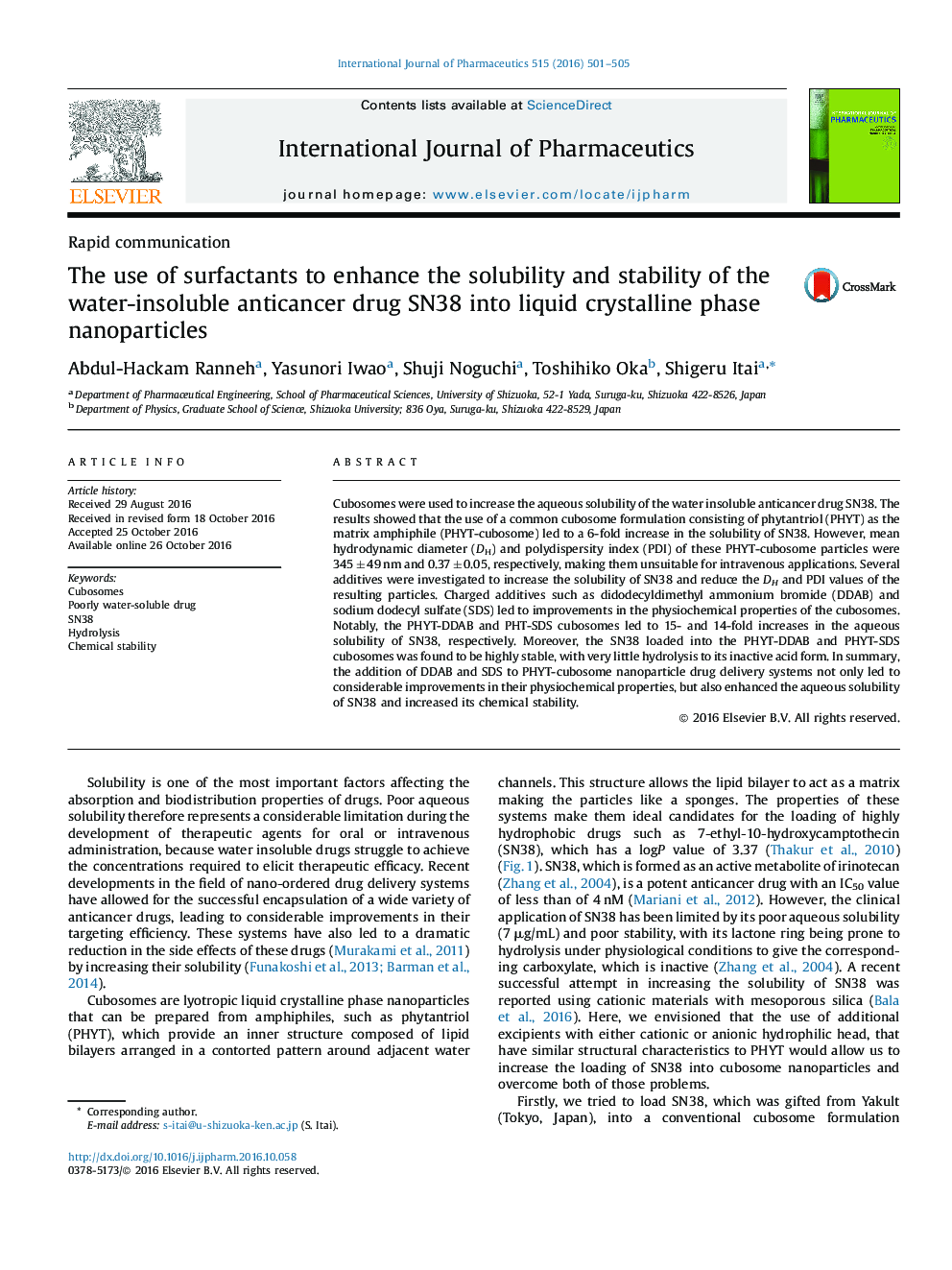| Article ID | Journal | Published Year | Pages | File Type |
|---|---|---|---|---|
| 5550918 | International Journal of Pharmaceutics | 2016 | 5 Pages |
Cubosomes were used to increase the aqueous solubility of the water insoluble anticancer drug SN38. The results showed that the use of a common cubosome formulation consisting of phytantriol (PHYT) as the matrix amphiphile (PHYT-cubosome) led to a 6-fold increase in the solubility of SN38. However, mean hydrodynamic diameter (DH) and polydispersity index (PDI) of these PHYT-cubosome particles were 345 ± 49 nm and 0.37 ± 0.05, respectively, making them unsuitable for intravenous applications. Several additives were investigated to increase the solubility of SN38 and reduce the DH and PDI values of the resulting particles. Charged additives such as didodecyldimethyl ammonium bromide (DDAB) and sodium dodecyl sulfate (SDS) led to improvements in the physiochemical properties of the cubosomes. Notably, the PHYT-DDAB and PHT-SDS cubosomes led to 15- and 14-fold increases in the aqueous solubility of SN38, respectively. Moreover, the SN38 loaded into the PHYT-DDAB and PHYT-SDS cubosomes was found to be highly stable, with very little hydrolysis to its inactive acid form. In summary, the addition of DDAB and SDS to PHYT-cubosome nanoparticle drug delivery systems not only led to considerable improvements in their physiochemical properties, but also enhanced the aqueous solubility of SN38 and increased its chemical stability.
Graphical abstractDownload high-res image (109KB)Download full-size image
